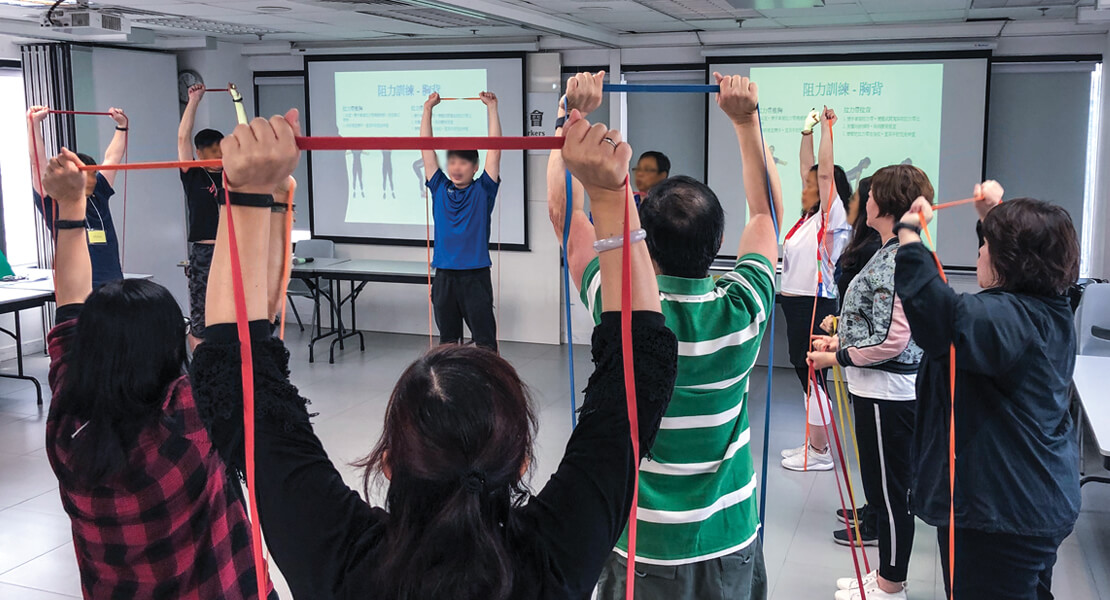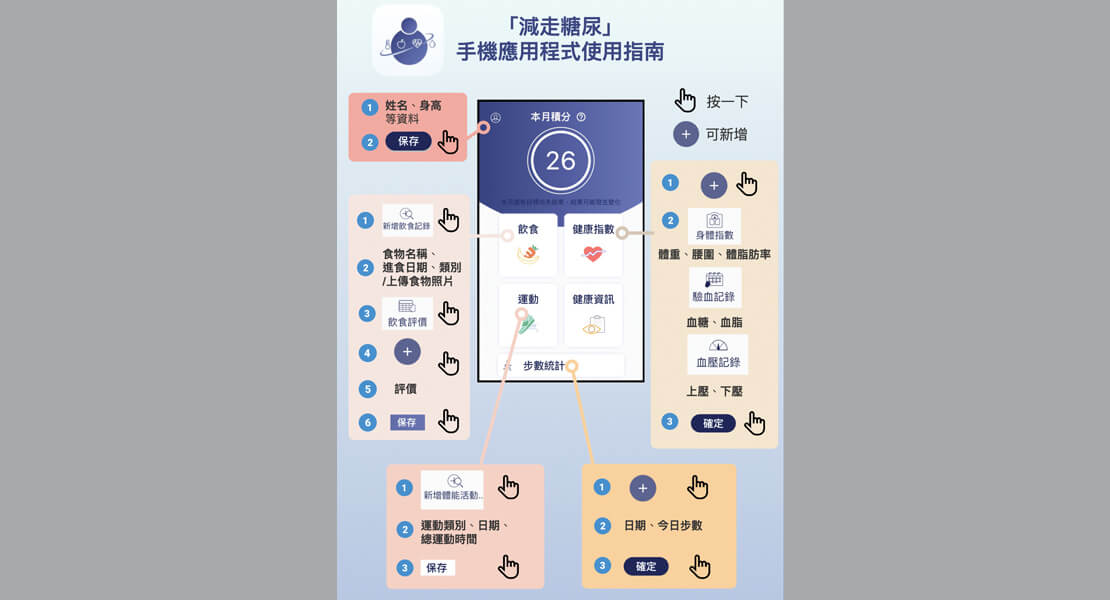
Research
Evidence-based Strategies Combat the Double Threat of Obesity and Diabetes
Dr Mandy Ho Man | Assistant Professor
Type 2 diabetes (T2DM) is an important cause of premature death and disability. During the COVID-19 outbreak, people living with diabetes have become more vulnerable to becoming severely ill or dying from COVID-19. Importantly, a growing body of research suggests that COVID-19 infections can increase an individual’s chance of developing diabetes, especially in those already susceptible to the disease. This may further escalate the burden of diabetes to individuals, families and society. Therefore, there is an urgent need to take action to reduce the risk of T2DM and combat this impact from the COVID-19 pandemic.
Our research team has been addressing the obesity and T2DM problems since 2017. We have launched and field tested the first community-based lifestyle intervention programme targeting overweight adults with pre-diabetes in Hong Kong by a randomised controlled trial during 2018 and 2021. The intervention group received structured group-based lifestyle interventions, while the control group received SMS interventions.
In the 12-month follow up, 46% of participants in the intervention group had lost 5% or more of their baseline body weight, and 34% achieved normal glycemic control (i.e., moving from pre-diabetes to normal glycemic control). The intervention also led to significant improvements in the levels of insulin sensitivity, blood pressure and cholesterol levels in the intervention group.
The findings of our study, which has received funding support from the Health and Medical Research Fund’s Health Care and Promotion Scheme, are consistent with other large-scale international trials that found lifestyle intervention targeting weight loss through healthy eating and increased physical activity is effective in reducing the risk of developing T2DM and its complications.
Meanwhile, the COVID-19 pandemic provided an opportunity to accelerate the implementation of digital health for preventing and managing diabetes. Our research team is now evaluating the effect of a digital diabetes prevention programme specially tailored for Hong Kong Chinese overweight adults with pre-diabetes. The results and experience of this study will provide evidence for developing a more scalable and cost-effective T2DM prevention model in Hong Kong.
Moreover, we have successfully obtained funding from the Hong Kong Jockey Club Charities Trust to scale up multiple evidence-based diabetes prevention strategies at the community level through collaboration with NGOs. This new project aims to transfer research evidence to primary care settings and empower NGOs and primary healthcare providers to deliver evidence-based interventions for diabetes prevention. Importantly, this will involve building capacity in NGOs and enabling them to set up a new service model for diabetes prevention in the community.
The results and experience of this project will inform the implementation of effective diabetes prevention model in Hong Kong and Asian countries to alleviate the disease burden of T2DM on individuals, families, communities and healthcare systems.







